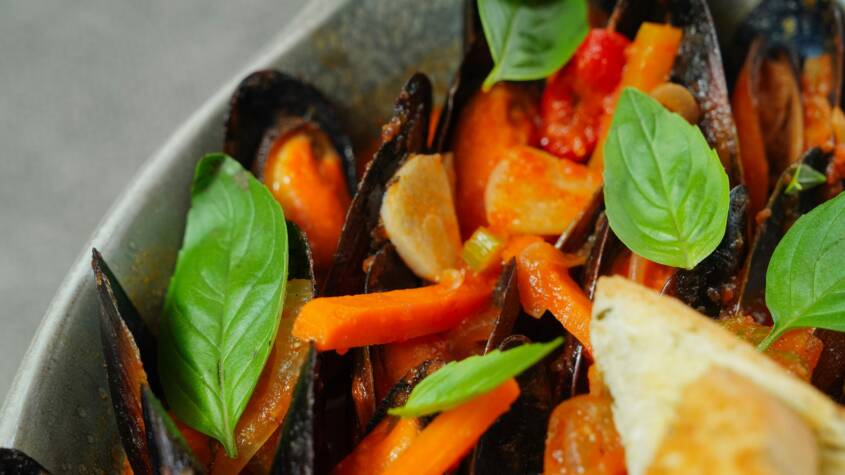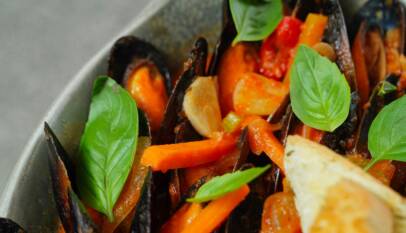Vegetarian Protein Sources for a Balanced Diet
For those exploring vegetarian diets, understanding protein sources is essential. Plant-based proteins provide a variety of health benefits, including heart health and better digestion, while supporting muscle maintenance and repair. Individuals often seek alternatives to animal proteins, and the abundance of vegetarian options makes it easier to meet protein needs effectively.
Legumes, nuts, seeds, and whole grains stand out as key contributors to a balanced vegetarian diet. These foods are not only rich in protein but also offer essential vitamins, minerals, and fiber. Incorporating a mix of these sources into daily meals can ensure adequate protein intake without sacrificing health.
By emphasizing protein diversity through vegetarian options, individuals can enjoy flavorful meals while maintaining their nutritional goals. Exploring the numerous protein-rich foods available can lead to exciting culinary experiences and long-term health benefits.
Fundamentals of Protein in a Vegetarian Diet
Protein is essential for growth, repair, and maintenance of body tissues. In a vegetarian diet, it is important to understand the sources, quality, and daily requirements of protein.
Understanding Essential Amino Acids
Amino acids are the building blocks of protein. There are 20 different amino acids, nine of which are classified as essential. Essential amino acids cannot be synthesized by the body and must be obtained through diet.
Vegetarians need to consume a variety of protein sources to ensure they receive all essential amino acids. Complementary proteins, such as beans and rice, can be combined to create a complete amino acid profile. For instance, beans provide lysine but are low in methionine, while rice provides methionine with lower lysine levels. Incorporating a diverse range of plant-based proteins can help achieve this balance.
Comparing Protein Quality and Bioavailability
Protein quality is determined by how well the body can utilize the protein consumed. This is measured by its amino acid profile and its digestibility. Animal proteins are generally considered high-quality proteins due to their complete amino acid profiles.
Plant proteins can vary in quality. Quinoa and soy are examples of plant proteins that offer complete amino acid profiles. Many legumes, nuts, and grains, while not complete proteins on their own, can still provide significant protein when combined appropriately. An understanding of protein sources’ bioavailability can guide vegetarians in choosing foods that meet their nutritional needs.
Daily Protein Requirements for Vegetarians
Daily protein needs vary based on age, sex, and activity level. For most adults, the Recommended Dietary Allowance (RDA) for protein is about 0.8 grams per kilogram of body weight. This translates roughly to 46 grams per day for women and 56 grams for men.
Vegetarians may need to pay closer attention to their protein intake. Foods like lentils, chickpeas, tofu, tempeh, and various seeds can help meet protein requirements. Regular monitoring of dietary intake ensures that vegetarians consume adequate protein levels necessary for overall health.
Top Vegetarian Protein Sources
Vegetarian protein sources offer a variety of nutrients that are essential for a balanced diet. This section outlines key categories of protein-rich foods ideal for vegetarian diets, focusing on their unique benefits and applications.
Legumes and Beans
Legumes and beans are among the richest sources of protein for vegetarians. Varieties such as lentils, chickpeas, black beans, and kidney beans provide 15-30 grams of protein per cooked cup. They also contain fiber, iron, and folate, promoting digestive health and energy levels.
Incorporating legumes into meals can be easy. They can be added to soups, salads, or made into spreads like hummus. Canned versions are convenient, but dried legumes are often more cost-effective and have a longer shelf life.
Fresh or dried varieties allow for versatile cooking techniques, such as boiling, baking, or slow cooking, accommodating various cuisines.
Nuts and Seeds
Nuts and seeds are excellent sources of protein while also rich in healthy fats and essential nutrients. Common options include almonds, walnuts, chia seeds, and flaxseeds. For example, a 1-ounce serving of almonds provides about 6 grams of protein.
They can serve as snacks, toppings for yogurt or oatmeal, and ingredients in smoothies or baked goods. Nutritional benefits extend beyond protein; these foods are packed with antioxidants and vitamins such as E and B.
Mixing different nuts and seeds can create a nutrient-dense trail mix. It is advisable to consume them in moderation due to their high-caloric content.
Dairy and Egg Alternatives
Dairy and egg alternatives cater to those seeking high protein without animal products. Options include plant-based milk (almond, soy, or oat), yogurt, and cheese. Soy milk, for instance, can offer up to 8 grams of protein per cup, similar to cow’s milk.
Plant-based yogurts made from soy or coconut can provide creamy texture while being positively regarded for probiotics. A variety of cheeses made from nuts, like cashew cheese, replicate textures and can be used in recipes.
These alternatives often come fortified with calcium and vitamin D, making them suitable substitutes for traditional dairy products.
Whole Grains
Whole grains are essential for delivering a balanced intake of protein. Quinoa, farro, barley, and oats are notable options that complement other protein sources. Quinoa, a pseudo-grain, contains about 8 grams of protein per cooked cup alongside essential amino acids.
These grains are versatile, fitting well into salads, bowls, and side dishes. Whole grains also provide fiber, iron, and magnesium, contributing to overall health.
Cooking methods include boiling, baking, or soaking, and they can serve as bases for hearty meals.
Soy Products and Meat Substitutes
Soy products, such as tofu and tempeh, are popular protein-rich options for vegetarians. Tofu offers around 20 grams of protein per cup and can take on various flavors in dishes. Tempeh, which is fermented soy, provides about 31 grams of protein per cup and a distinct nutty taste.
These products can be grilled, stir-fried, or used in soups, making them highly adaptable in meal prep. Additionally, meat substitutes made from pea protein or seitan offer flavors reminiscent of traditional meats.
Choosing fortified soy products can add vitamins like B12 and enhance nutritional value, making them suitable for a range of diets.
Zudio Franchise: A Guide to Profitable Retail Opportunities
Zudio franchises represent an exciting opportunity in the retail sector, particularly for …











